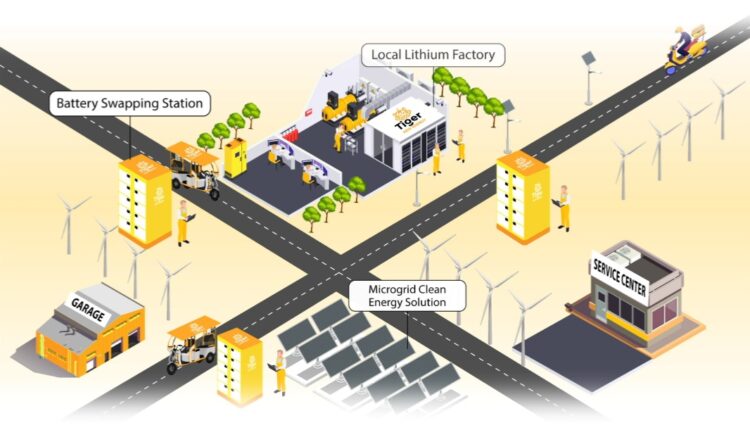In a remarkable tale of entrepreneurial spirit, two Harvard graduate students have managed to transform urban transportation in Bangladesh through their innovative battery startup. Nicole Mao, 33, and Yiwei Zhu, 32, have been quietly building one of the country’s hottest startups for the past three years, after getting unexpectedly stranded in the country due to the pandemic.
Their startup, Tiger New Energy, is providing a game-changing solution to the millions of electric rickshaws that dominate the bustling streets of Dhaka and other Bangladeshi cities. By creating a network of battery-swapping stations, the female duo is making it easier and more convenient for rickshaw drivers to keep their vehicles running.
The concept is simple yet ingenious – rather than taking the time to fully charge their rickshaw batteries, drivers can now quickly swap out their depleted ones for fresh, fully charged replacements. This not only saves them valuable time, but also allows them to make more trips and earn higher revenues.
“There’s immense demand,” says Mao, the Dhaka-based CEO. “As the economy grows, more people are leaving rural areas for work opportunities in the cities. That is creating demand for mobility.”
While the tuk-tuks of India and Thailand rely mainly on gasoline or natural gas, Bangladesh’s three-wheelers are predominantly electric. However, the traditional lead-acid batteries used in these vehicles come with significant drawbacks, including long charging times and hazardous disposal issues.
Sensing an opportunity, Mao and Zhu decided to take action. Leveraging Mao’s family’s battery-making expertise in China, the pair set out to assemble more sustainable lithium-ion batteries and establish a network of swapping stations across Bangladesh.
The journey has not been without its challenges. Initially, the founders encountered resistance from rickshaw drivers who were unwilling or unable to afford the $400 upfront cost of their advanced battery packs. Undeterred, they pivoted to the battery-swapping model, which has proven to be a resounding success.
Today, Tiger New Energy’s network of automated swap stations, connected to the local power grid and supplemented by solar panels, are rapidly expanding across the country. The founders are in the process of raising a $30 million Series A round, which they plan to use to grow their presence to 2,000 stations by 2025, and to expand into neighboring Nepal and the Indian state of West Bengal.
Despite the political turmoil that has gripped Bangladesh in recent months, the startup ecosystem in the country remains resilient. According to a report from LightCastle Partners, local firms have raised close to $1 billion in funding since 2013, underscoring the immense potential for innovative solutions like Tiger New Energy.
“In China or the U.S., it’s very challenging to find an area with unfulfilled demand,” says Mao. “But in Bangladesh, I always get people asking if we can help build something they don’t have.”
As the Harvard duo continues to power the rickshaws of Bangladesh, their story stands as a testament to the transformative power of entrepreneurship and the ability to identify and address unmet needs in emerging markets.


